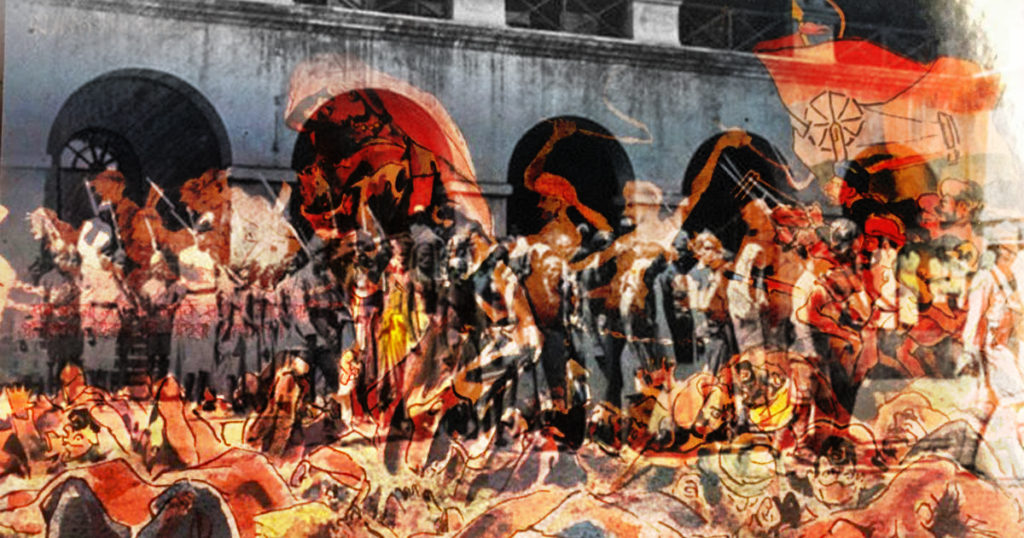Context:
This year marks 104 years of the Moplah rebellion in Kerala, which some organisations are demanding to be termed as Hindu genocide
More on the news
- On the 25th of September 1921, in North Kerala, Chambrassery Imbichi Koithangal (one of the Khilafat leaders) held a rally with over 4,000 of his followers, during which 38 Hindus were Killed.
- Due to these killings, Rashtriya Swayamsevak Sangh (RSS) has demanded that the Moplah Rebellion of 1921 be termed a genocide.
- This year, August marks the 104 years of events known as Mappila Lahala in Malayalam and Moplah Rebellion in British colonial records, which took place in the Malabar region.
What was the Moplah Rebellion?
- The Malabar rebellion, also known as the Moplah (Mappila) Rebellion, was an armed revolt staged by the Moplah Muslims of Kerala against the British authorities and their Hindu landlord (also called Jenmis) allies
- The major grievances of the Moplah tenants were
- Insecurity due to an unfavourable land tenure system due to which Moplahs could be ejected from their land without any appropriate notice
- High renewal of fees fixed by the Jenmis
- Discrimination against them, as High rent was fixed for Moplah tenants as compared to Hindu Tenants.
- The meeting of the Malabar District Congress Committee at Manjeri in 1920 supported the tenants’ cause and demanded legislation to regulate landlord-tenant relations.
- The British government issued prohibitory orders against the Khilafat meetings in 1921.
- In August 1921, police raided the mosque and opened fire on the unarmed crowd killing many persons. Due to this, clashes ensued government offices were destroyed, records burnt, and the treasury was looted.
- In the agitation, the targets of the Moplah attack were the unpopular Jenmis, police stations, treasuries and offices, and British planters.
- By December 1921, all resistance had come to a stop. Some historical accounts state the uprising led to the loss of around 10,000 lives, including 2,339 rebels.
- It is perceived as one of the first nationalist uprisings in southern India.

